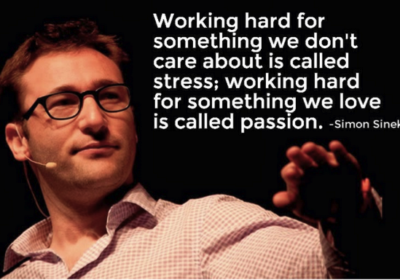
- Stats: 2724 1 0
- Author: Melissa Histon
- Posted: 17/02/2016
- Category: Blog, Health and Wellness, Relationships
A profile of a narcissistic parent
WARNING: I begin this post with a warning that you may find the content distressing.
If that’s you, please stop reading, do something that you will find soothing, then come back if that’s what you would like to do.
CASE STUDY: A Child of a Narcissist
At 15 she walked into the doctors office feeling nervous, full of shame, desperately needing help. She was happy her father was with her because maybe the doctor would, maybe could, explain the ravages of her illness, bulimia nervosa, and how it was all consuming, all powerful, and unstoppable.
She had been ill since she was 12. She shared just enough for the doctor to understand she needed help, serious psychological help. A referral was given to see a psychiatrist.
In the car on the way home, he turned to her and said, ‘you see how the doctor said what a good father I am that I would come with you to see him.’
There was no concern about her health, no concern that bulimia could kill her, no concern about how she felt. No questions about how to help her and no thought about what she was going through.
No discussion as to how she would be able to afford to pay the psychiatrist bill. She was on minimum wage working full time, no tertiary education for her. ‘Children should not know more than their parents’, he would say.
She went to the psychiatrist who said she was able to reason well so no future appointments were necessary. She felt relieved that she wasn’t crazy but helpless because no one seemed to understand what she was going through, not even the professional. No one could explain why her father was so angry with her.
LIVING WITH A NARCISSISTIC
He would tell her how the way she looked, so very overweight, was a directly disobedient and defiant act towards him. She was hurting him which was completely selfish. She didn’t want to upset him. She was troubled and confused as to how hurt, in fact enraged he was.
The criticism, the analysis, the ever watchful eye of her young body was the never ending subject that could determine his mood. If she looked ‘good’ there was peace, praise even. ‘’That’s my daughter” he would say.
When she didn’t look ‘good’ he would highlight her every flaw with a barrage of hate filled language that terrorised and confused her. The only good thing about her was her lips he said, because ‘they’re like mine.’
To everyone else she looked like a healthy young girl. No one else but her parent believed her to be overweight. Not her friends, not her school, not her doctor. She had become obsessed with her weight and her looks.
She would endlessly exercise, was trapped by the bingeing and purging cycle, constantly worry about how she looked. She didn’t know how destructive her behaviour was. She didn’t know how destructive his behaviour was. No matter what she did, he was angry with her.
She was always on edge, always frightened, always trying her best. If she did something or said something that he was displeased with, the rage, the ranting, the humiliation was devastating to her. She was suicidal. She would ask forgiveness to keep the peace and make him happy.
One time, she actually got to the weight she thought he wanted her to be. She was so stressed she had lost her appetite, the bingeing and purging cycle had stopped. He told her she was too skinny and she needed to eat.
She realised no matter what she did, she never please him.
One day, when she had endured all she could, she said no to him for the first time in her life. He ranted and raved, saying he never wanted to see her again. She was heartbroken but she had enough.
She didn’t go back and ask for forgiveness. She tried to speak to him, he wouldn’t have it. She was banished, never spoken to again. He died 18 months after she said no.
CASE STUDY SUMMARY
What we see in this case study is a complete lack of empathy this father had for his daughter. He did not have the capacity to see her as a separate and unique human being with her own needs. He demanded from her what was impossible without any care that she was at the point of her near destruction.
He wanted, needed a perfect reflection of how he saw himself from those around him. His fanatical control and manipulation was necessary to him in order to chase down a fantastical image of perfection that didn’t match reality.
He did this without any conscious awareness of the impact on his daughter because there was no room for her that could compete against his deep hole of emptiness that could never be filled. The need he had to be centre of his universe and of the universes of those around him. If that didn’t occur, his rage was insurmountable.
NARCISSISM DEFINED
Narcissism. Narcissist. More than ever before, these labels are used and have become part of everyday language. No longer does it exist just within clinical offices and practices but in recent years, has been used to describe an entire generation. But what does it mean to be a called narcissist?
Within all of us there is a degree of narcissism. What it comes down to is whether it is healthy or not.
It’s helpful to think of it as being on a spectrum where you’re able to find people at either extreme, with most somewhere in between. Another way to think about it is in terms of how developed (healthy) or underdeveloped (unhealthy) the narcissism is within a person.
According to Nina W Brown, an expert who has written numerous books on the subject, narcissism can be thought of as how a person feels about themselves, which can be seen by how the person behaves and the type of attitudes they have towards others.
For example, if a person feels worthy and has healthy self-esteem, they have a realistic idea of who they are and what they’re able to achieve. They’re able to understand themselves in a way that accepts their strengths and weaknesses equally and maturely. They’re able to have realistic expectations of those they have relationships with and are able to empathise with them.
Unhealthy narcissism, says Brown, is “extremely immature, unrealistic and completely self-serving’’. That is, everything is viewed as how it is for him/her, how it impacts him/her, what the experience is like for him/her, what it means to him/her.
There is no room for you, just ‘I’. There will be consistency in this behaviour and attitude across all aspects in life, especially in relationships. It can be summarised as ‘you don’t exist without me, there is no you, just me.’ Plus, they feel entitled to make any demand from anyone they see fit to do so.
IMPACT ON A CHILD
Anyone with a two year old knows that the world revolves around them as that is the only world they see. Everything is for them and about them. This is undeveloped narcissism at its prime. A two year old is vulnerable without attention, nurture and care it needs for their survival.
A child doesn’t see you and I, it sees its mother is me. Through their development, they begin to see people as individuals. You are you, and I am me. Narcissism develops when there is no separateness of identity between you and me, it’s only I.
Having a parent with narcissistic traits means that like a very young child, there is no you and ‘I’ only me. That leaves no room for their child. Anytime a child demonstrates the need to express their individuality through the natural course of development, there’s the strong possibility they’ll be meet with opposition if it is a threat to the parents desired reflection.
Due to there being no room for the child to become their own person, determine their own future, to develop into who they want to be, they become stunted in their growth, especially when trying to appease the parents every whim.
Any accomplishment or achievement has a high likelihood to be about how it reflects their parent, not about individual capability of their child.
I had a client who had only recently met her biological mother. When telling her about a high score she had worked hard for in an exam, her mother said ‘of course you did well, I created you’.
IMPACT ON ADULT RELATIONSHIPS
The heart cry I hear in my office is the desire to feel love and acceptance from their narcissistic parent. The very sad reality is that it’s simply not possible. This is an extremely difficult truth to swallow especially when our own biological make up cries out for comfort and love.
Often I see clients who’ve experienced relationship break downs because they simply don’t know how to do relationships that are equal and loving because an example of one, nor a strong foundation of parental love has not been formed for them to know what a healthy relationship looks like.
In fact, neither are they are aware of what it’s like to have a relationship with a psychologically healthy person. When they have been subservient to their parent for many years, it’s difficult for them to speak up for themselves and really find what they want out of life and relationships.
Some adult children find it difficult to continue to have any type of relationship with their parents due to their dominance and need for control.
Often I see extremes where there is either estrangement or total compliance which becomes more and more difficult to maintain. There is a way to deal with difficult and extreme personalities which I will cover in my next blog.
Until next time.
Love Rita Xx






